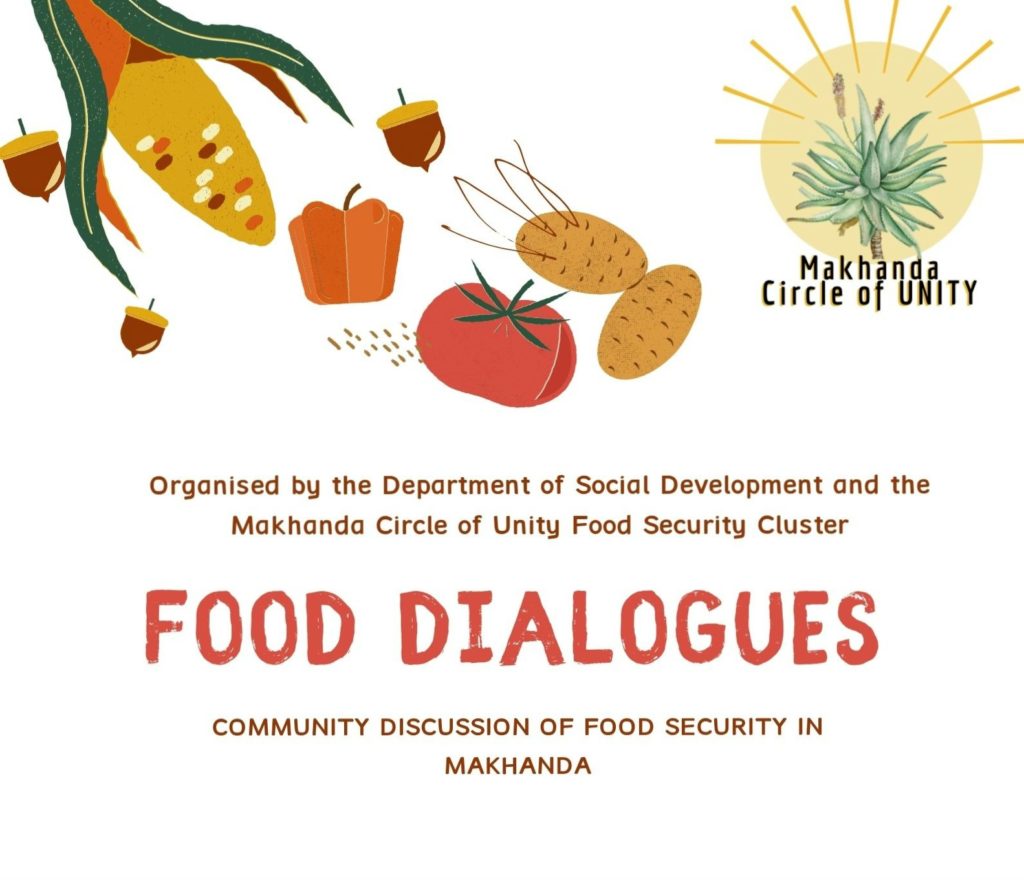By MAKWENA MANAKA and ROD AMNER
At least 24 community kitchens popped up around Makhanda in the wake of the Covid-19 lockdown in March 2020 as jobs were shed and access to food deteriorated.
Most of these kitchens were started by concerned citizens on a wing and a prayer, using their resources and, later, donations from a range of committed civil society organisations.
Around 18-20 are still running, but donations have been harder to come by in 2021.
You can read about how the local #foodheroes have selflessly contributed to food security in our city on pages 3-6 of this week’s edition of GMDirect.
Meanwhile, according to Gunda Krause, chairperson of the Grahamstown Feeding Association (GFA), an informal survey conducted by the GFA last year collected the names of 9 000 Makhanda households that are food insecure.
Covid-19 simply exacerbated a problem that is already deeply entrenched in our community, she said.
While many churches and other civil society organisations, like Food for Futures and the Grahamstown Feeding Association, continue their extraordinary efforts, they are all private sector initiatives and compete for a small pool of donors.
This month, the Makhanda Circle of Unity, in conjunction with Rhodes University, the Department of Social Development, the Department of Rural Development and Agrarian Reform, Umthathi Training Centre, Sarah Baartman District Municipality and Makana Municipality have embarked on a joint programme to raise awareness on the current food system in Makana.
The food dialogue
An interactive food dialogue was facilitated by Makhanda Circle of Unity programme manager Sakhe Ntlabezo on Thursday 14 October to promote talking, thinking and acting around food-growing and food sustainability in our communities.
You can watch the video of the event here: https://www.facebook.com/watch/MakhandaCircleofUnity/
Dialogue participants in the dialogue agreed there was an urgent need to map food security in the city correctly and that any initiative needed accountable and robust leadership to coordinate the efforts of all role-players.
Krause said the GFA had been “feeding those in this town who tell us they are hungry” for 22 years.
Krause said that in an ideal society, the GFA should not exist. “Most of the people who come to the GFA food kitchen are homeless. They own the clothes on their backs. Talking about a community garden for these people is not realistic. So, when we talk about the needs of people, we need to look at the many different spectra.”
She suggested several ways we could advance food security in the city:
– Map all the on-the-ground feeding schemes – “they are not the solution, but they give us a sense of the scope of the problem”.
– Find out if they co-support the same groups of people or different groups of people – “we need to know the scope of the problem”.
– Find out why so many households are food insecure – “did they lose jobs to Covid, or are these people with other problems”.
– Map all community gardens and food supplies.
– Update database of 9000 households – “and we must mine the info in a useful way”.
– Use all this information to identify and delegate actions.
In her keynote address, Prof Lausanne Olvitt from Rhodes’ Environmental Research and Learning Centre said the global food system “is not designed to feed people; it is designed for profit”.
“Food Security needs a stable, efficient society – food chains cannot trap our town,” she said.
Ludwig Chanyau, a researcher at ERLC, agreed: “The problem is a flawed global system. We want an approach where we focus on how food is produced and processed in the community. Who is producing what? What interventions can we come up with to indigenise the food system.”
Pastor Buyisile Geelbooi said the promotion of food security implied the rise of “healthy food systems in our community”.
“We need to teach skills and network with each other. For example, there are churches in most communities – they can be used as locations to provide food.”
Mark Makashane from the Department of Rural Development and Agrarian Reform said his department worked with small scale farmers. Still, there is “not a lot of land suitable for small scale production available in Makhanda. And it often takes a long to get access to land, and people lose interest.”



